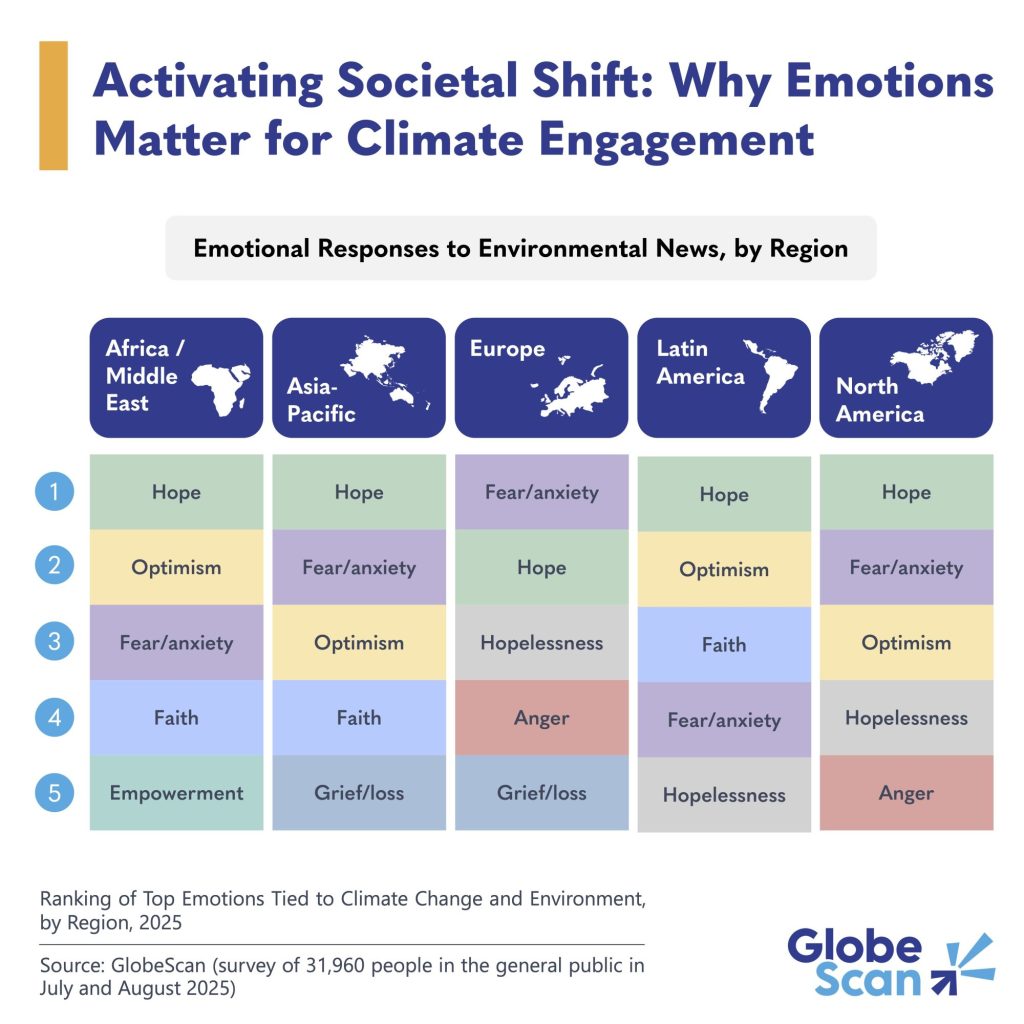How emotions shape climate action around the world
Tailored communication to meet people where they are is key to driving environmental action. Read More

- New research shows climate transition success hinges on societal buy-in and emotional resonance.
- But emotional engagement with climate action varies significantly across regions, with people in the Global South feeling more hopeful and empowered than people in Europe and North America.
- Sustainability professionals can build emotional support to help people feel empowered to act instead of being paralyzed by fear and anxiety.
New research about how people engage emotionally with environmental, climate and nature-related issues show a large regional difference.
Trellis data partner GlobeScan’s research around what motivates people to act when it comes to climate change shows in Africa and the Middle East, people tend to feel hopeful and empowered, whereas in Europe and North America, reactions are often marked by fear, anxiety and a sense of helplessness. These contrasting emotional landscapes reveal that climate communication cannot take a one-size-fits-all approach. To truly resonate, messaging must be culturally attuned and reflect local emotional realities and values to inspire meaningful action.

What this means
GlobeScan’s project, Societal Shift, shows that emotional responses to climate issues are varied, nuanced and full of potential — if harnessed effectively. In the Global South, where feelings of hope and empowerment are more common, there’s an opportunity to build on this optimism and resilience. These emotional foundations can support locally-driven solutions and leadership that reflect community values and aspirations. In the Global North, where fear, anxiety and helplessness are more frequently expressed, communication strategies can evolve to offer a more constructive path forward. This might include amplifying stories of action and not just intent or doom and gloom, to inspire confidence and a sense of agency. This might also include channeling frustration and anger toward calls for greater justice in the climate fight. Emotional engagement is not a distraction from climate action; it plays a central role in enabling people to move from awareness to meaningful participation.
Based on a survey of more than 31,000 people conducted in July and August 2025.

Subscribe to Trellis Briefing
Featured Reports

The Premier Event for Sustainable Business Leaders















